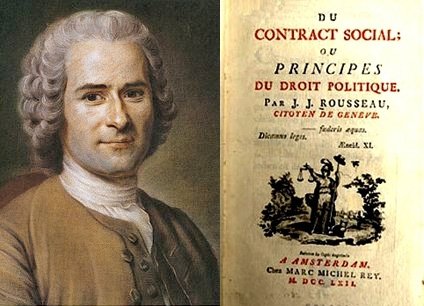A New Social Contract
By Anna Maddrick & Dr. John Kirk Boyd
At Legal Pact we seek conversation about our social contract so that all of us who are linked can renew the one we have. In our first blog, we share our thoughts and welcome yours.
Social Contract Theory
“THE PEOPLE BUILD THE MACHINE, THE PRINCE MERELY OPERATES IT”
We Have a Right to Law. When we think of rights, typically we think of them as singular entities. My right to life, to property, to be free from torture. We think of the importance of the increase of rights, to cover all dimensions of social, political and cultural organisation. We think of their violation, the importance to stand up and shout for them. We think of the importance they are respected certainly, but do we remember our right to rights themselves? That is - do we collectively remember that we have a right to law itself?
Natural law espouses the existence of certain rights simply due to the intrinsic value of human beings. However, natural law also describes another important idea: that of the social contract. In its original conceptions (Thomas Hobbes, John Locke, Jean-Jacques Rousseau), the social contract theory highlights how rational human beings naturally, and therefore rationally, denounce certain individual privileges from a “state of nature” to the state in exchange for collective protection. The creation of such a contract imposes reciprocal duties, which may be summarised quite simply as: the state’s obligation to provide law, and the citizens’ obligation to respect it.
A contract imposes bilateral duties. While theories of the social contract’s purpose differentiate between the theorists as to a justification of the sovereign or rather protection of the individual, neither neglects the existence of law itself. Rather, social contract theory highlights how in the absence of functioning law safeguarding citizens, there is a breach of contract. Today, communities all over the world are fighting for basic human rights, while the environment which sustains us shouts with a voice we can increasingly see but apparently not hear. We can well argue that our social contract is in default.
As Rousseau puts it in Contrac Social (1762) "The people build the machine, the Prince merely operates it." This is particularly true of Bills of Rights, but also applies to the drafting of international law. As an inherent aspect of writing these rules, the people also have the right of enforcement of their right of law - that is, independent courts to hold those accountable who govern them. As part of the drafting of rules for those who govern, our social contract can, and should, include protections for the environment through civil and criminal law, with the means for accountability in courts.
The Secretary General’s call for a “renewal” of the social contract is therefore timely, and our considered opinion that such a call invites a consideration of what the social contract actually refers to. We consider this to be the right to law itself. This might seem a peculiar statement, given there is no shortage internationally of regulation. However, there is a tangible frustration cross-jurisdictionally with legal enforcement. This fact led to the Legal Pact’s very existence, the issue encapsulated by the slogan of “more courts and fewer reports”.
We firmly believe that real change cannot occur solely on legislative paper, but requires materialisation in appropriate civil and criminal judicial settings. However on a more philosophical level, we take the position that the social contract theory in fact demands the use of law. Law is nothing but an agreement to live together, and something the international community is progressively losing touch from. As wars of the mind, nature, culture, politics, institutions and societies take hold all over the world, citizens are understandably apathetic and disillusioned by the legal and political structures that govern them.
While an aim of making law ‘cool’ is perhaps unrealistic, we hope to remind the international community of law’s real purpose - to protect all rights, and therefore the right of law in itself to be respected. With this Legal Pact for the Future, our aim is simplistic. We hope to unite people, NGOs, businesses and governments around judicially enforceable human and environmental law - reviving the social contract as the Secretary General called for. This revival provides us with an opportunity to come together and set new rules for how we choose to live in peace with each other, planet Earth and outer space.
Let’s choose to put our differences aside and remember the origins of our rights.
Let’s remember that we have a right to law.

